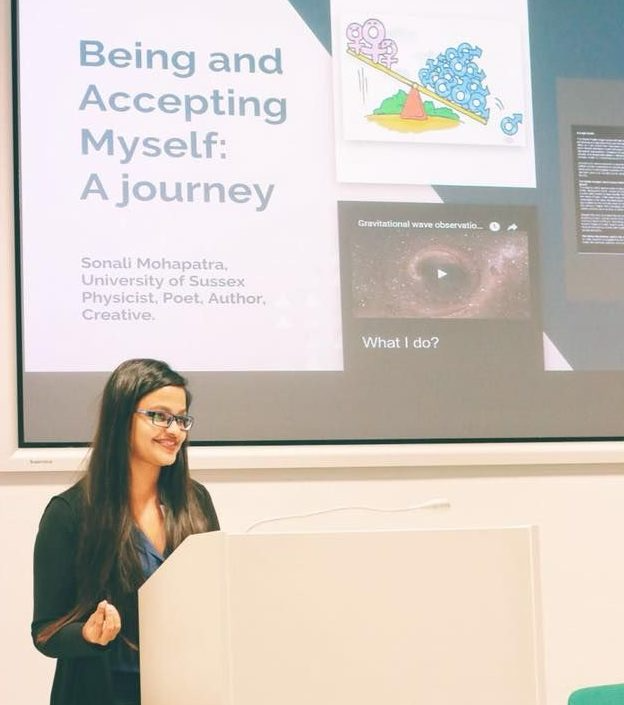Rocket Women were thrilled to have the chance to talk to Dr. Sonali Mohapatra about her research in quantum technologies for space, how she was inspired to pursue her academic path and the piece of advice that she would give to herself if she could go back in time!
What do you work on in your current role?
I am working in the space company called Craft Prospect as a Space Quantum Technologies Developer, and as a researcher with the University of Strathclyde on an IAA fellowship (impact acceleration fellowship). I spend two days or three days a week researching different kinds of quantum technologies that can be onboarded into space for innovative solutions. The three other days of the week I use that research, and a lot of other knowledge transfer from the university to find applications and then build payloads for cube SATs in the in the Craft Prospect side of things.
Currently, we are working on the ROKS mission, it’s the responsive operation key services mission which is a 6U CubeSat. It was supposed to be launched in 2021, but due to COVID, the launch has been pushed to 2022. I am involved in the building of the quantum payload of ROKS – which is one of the three payloads ROKS will carry.
It will be a technology demonstration mission to showcase that we can achieve secure downlink quantum key distribution from satellite to Earth.
It will be a technology demonstration mission to showcase that we can achieve secure downlink quantum key distribution from satellite to Earth. We’re will onboard a weak coherent pulsed (WCP) laser source onto the satellite which will basically shoot approximately single photon pulses down onto the earth. A mobile ground station is being built at the University of Bristol which will receive those pulses and do the post processing required. At the end of the day, you will have produced a secure key, which then you can use for cryptography, or encrypting any kind of data.
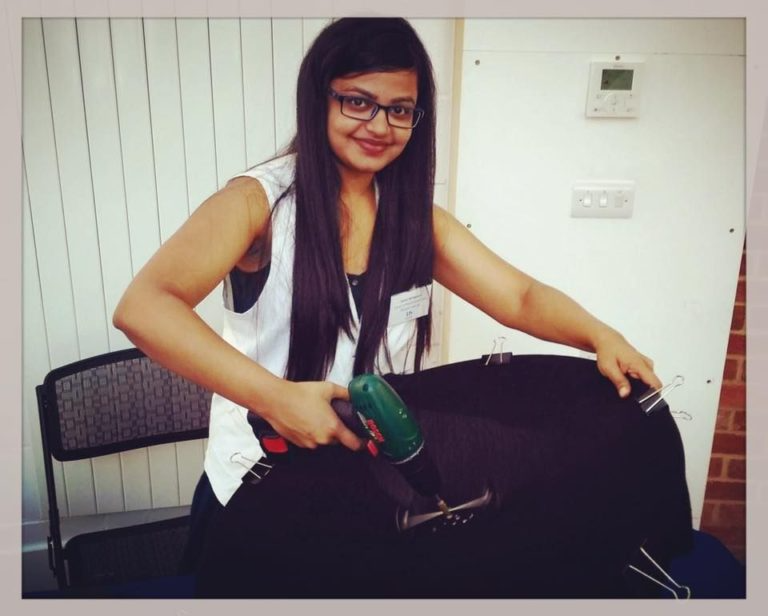
What was your path getting to where you are now?
It was interesting because previously I also worked in the space sector, but mostly I was working on black holes and gravitational waves because I’m a theoretical physicist by training. During my journey from being an undergrad in India to finishing my PhD in quantum gravity from the University of Sussex, I have worked with various teams in several countries: for example, I worked on the LIGO prototype interferometer in Caltech where they detected the gravitational waves, and later I was working in quantum gravity at Perimeter Institute in Canada. I’ve always been interested in anything related to space and finding out more about the structure of the universe – that really catches my attention. My motivation towards it is that I really love fantasy books, and sci-fi.
When you actually do physics you find that reality is even more mind boggling than fantasy. So my daily fix of fantasy is going to be in my profession, and that’s how I started delving into theoretical physics!
When you actually do physics you find that reality is even more mind boggling than fantasy. So my daily fix of
fantasy is going to be in my profession, and that’s how I started delving into theoretical physics! I also had a lot of interdisciplinary research project experience from my undergrad in India as we had to do a research project every
semester, and every summer as well. For example, I have worked in biophotonics using photons to detect Cancer at IISER-Kolkata, India. I have also worked in the field of AI where my team used programming to teach a computer how to form rules loosely based on how the human mind does rule formation. I have worked on protein folding as part of a semester project and once I built a solar cell as well. I have found that no experience goes wasted as long as you are learning something interesting.
After my PhD I figured out that I wanted to do something both in industry and academia if I can. I reached out to Craft Prospect and applied for an undergraduate placement position, because I thought that I should start somewhere as I didn’t have industry experience. I feel like I got lucky meeting such an amazing company, not only in the fact that they work on cutting edge technologies, but also the general culture is very aware and empathetic.
I am now leading some of the company modelling work in Quantum Cryptography and I couldn’t be happier!
I got invited for an interview for a different position they thought I would be more suitable for, given my experience – the interview went really well, we applied for a fellowship to create the joint position and here I am now leading some of the company modelling work in Quantum Cryptography and I couldn’t be happier!
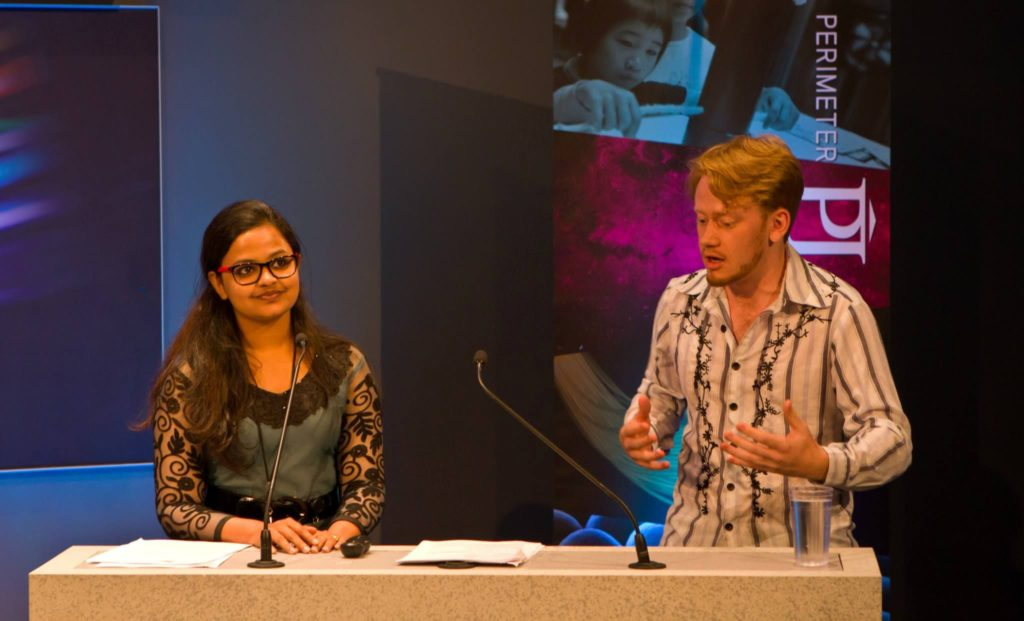
What inspired you to take the academic path you have taken?
My mom, she used to love physics and engineering. She did get into one of the best engineering colleges in the state back in India but at that time since she was one of the two women who got in, the low number meant that her parents thought it would be unsafe for her in a place without much gender diversity so she had to say no to quite a lot of opportunities. She did work as a statistics researcher for a while, which again she had to give up to choose a stable job in the State Government. She always had that curiosity within herself and I think she wanted her daughters to take that forward if we wanted to. She used to encourage me to go to science exhibitions and I remember that the very first one actually when I was in second grade, which I somehow won!
I think that laid the stepping stone for quite a lot of things in the future. She has always been my first strength and it’s like how they say – educate a woman and you are making sure a family grows up strong! My aunts and uncles are also doctors, engineers and researchers and they encouraged me a lot along with my school teachers! I got lucky in that sense of having that exposure and focus on education in my formative years.
My father was also a political science graduate and he brought the artsy side of things into the family. I remember one time when my father asked me to fix his motorbike since I was a physicist, and he assumed I must be good at mechanics, haha!
The fact that [my Dad] had no qualms about his daughter being good at physics – in a society which actively assumes women’s place outside of it, felt great!
Unfortunately for him I was not so good at the classical mechanics but everything quantum made sense to me, so instead of fixing the bike, I just ended up pushing him to let me drive it and he did! But the fact that he had no qualms about his daughter being good at physics – in a society which actively assumes women’s place outside of it, felt great!
I should give a lot of credit to my grandfather too, because for someone his generation, it’s astonishing how progressive he was. He really wanted his sons and daughters all to be on the same footing so he worked day and night to make sure that they got a good education. He used to always call me up and ask things like “Oh, the Higgs was discovered can you tell me what it is?” and so family definitely was a great motivation.
My grandmother, who herself did not study after third grade and got married as a child (I know!) told me stories of how she regretted not pursuing more in her education. Even though she did not have formal education herself, she ended up looking after the education of her children when my grandfather was at work most times.
My grandmother, who herself did not study after third grade and got married as a child (I know!) told me stories of how she regretted not pursuing more in her education. Even though she did not have formal education herself, she ended up looking after the education of her children when my grandfather was at work most times. I grew up listening to all the hardships they faced to make sure their children got a better education and so, I think I always understood the importance of pushing myself. My family has been very supportive and I think that’s also a huge privilege which a lot of people do not have.
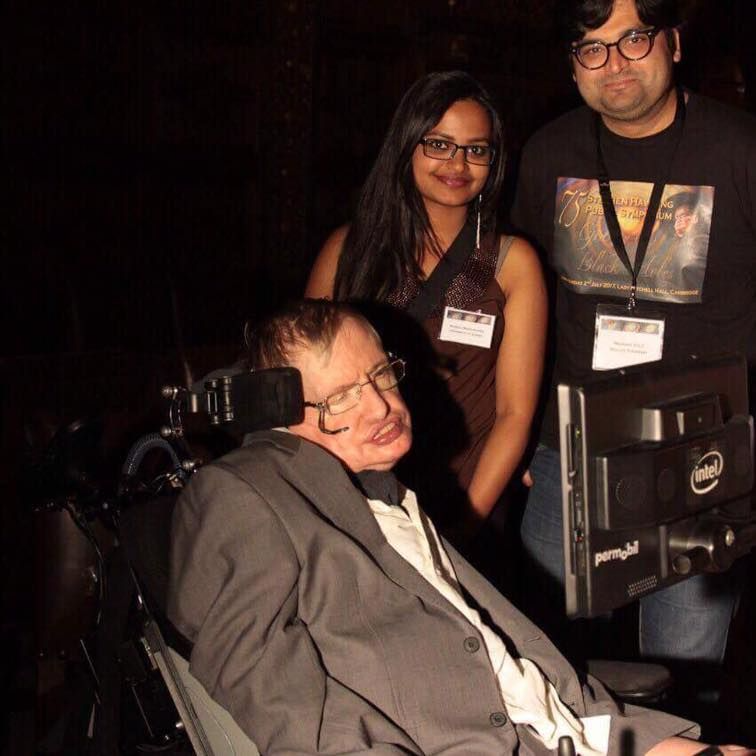
Kalpana Chawla was the first woman of Indian descent to go into to space and she made it into the hearts of millions. She blew the path open for women to jump in these professions because I think everyone saw a bit of Kalpana Chawla in themselves. I think that was a big leap forward for me and that was definitely one of my biggest role models in space.
Did you have any role models growing up?
Kalpana Chawla definitely is my first role model in the space sector along with Einstein and Feynman before I discovered more women like Noether. She was the first woman of Indian descent to go into to space and she made it into the hearts of millions. She blew the path open for women to jump in these professions because I think everyone saw a bit of Kalpana Chawla in themselves. I think that was a big leap forward for me and that was definitely one of my biggest role models in space. But then, I’ve always found role models everywhere that I’ve been in every person. Everyone has some great things they do or act or behave and there’s something to take home from everyone.
The second role model when I was a child was Indian Scientist and former Prime Minister Dr APJ Abdul Kalam, also known as the “Missile Man of India”. He was a very vocal president and it was refreshing just to see such a trailblazer as he was.
The second role model when I was a child was Indian Scientist and former Prime Minister Dr APJ Abdul Kalam, also known as the “Missile Man of India”. He was a very vocal president and it was refreshing just to see such a trailblazer as he was. He visited schools all over India and he used to say “Dream, Dream Dream! Dreams transform into thoughts, and thoughts result into action.” I had the chance to talk to him face to face when I went to represent my state at the National Science Congress and he was a celebrity among kids who loved science! He came from a very humble background and achieved amazing heights so they saw that they could also do something even if you come from very humble beginnings.
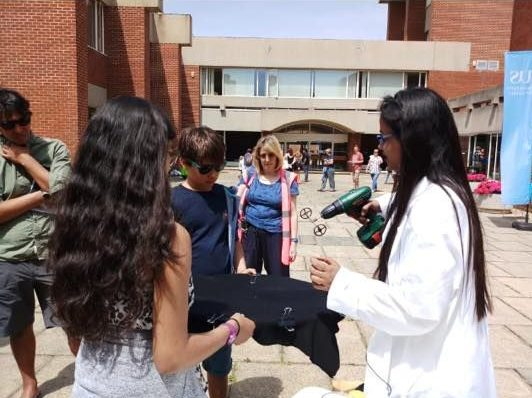
Whenever I have had questions to ask, or ambitions about things, I always felt like I had to hide a part of myself because women, when they aspire to the same standards as men, are always made to feel bossy, like they are too much, and this is a huge baggage to carry around and negotiate with as a kid.
Do you have any advice for yourself if you could go back in time?
I have always felt, (and I think a lot of women or anybody who’s from a minority demographic feel this way) slightly out of place, like I did not belong just because I did not know the behaviour which gets rewarded the most – in short – Imposter Syndrome . Whenever I have had questions to ask, or ambitions about things, I always felt like I had to hide a part of myself because women, when they aspire to the same standards as men, are always made to feel bossy, like they are too much, and this is a huge baggage to carry around and negotiate with as a kid.
My imposter syndrome increased even more during my undergraduate because the gender ratio was worse there and people were not used to women knowing what they want. So, even though I acted extroverted most times and I negotiated my way around the world pretty well despite the obstacles, my nights always saw me go back and cry for the amount of backlash you face for just trying to stand up for yourself and demand to participate in things. So, if I go back in time, I would like to say to my younger self to be as loud as I could have been and be as confident as I wanted to be. Because at the end of the day, there will come a time when it doesn’t matter who thinks you are loud and bossy.
I thought that no one would possibly believe me – which is sad, because I think I had one of those mothers who actually would have.
I still struggle to stand up for myself in quite a lot of places – I find it easier to stand up for other people, as a lot of us do. But I would really want to tell my 10 year old self to just be as loud as she wanted to be and as free as she could have been! I would also probably want to instill in my younger self awareness enough and security enough to speak out against harassment and molestation that I went through and that affected me quite a lot but I never dared to mention. I thought that no one would possibly believe me – which is sad, because I think I had one of those mothers who actually would have. So, if me, coming from such a privileged place in many ways never managed to speak out against my abusers – think about what so many other people are going through.
I would also say don’t be afraid of just like reaching out to people and applying to unconventional places that you might think perhaps I’m not qualified for, that these are not the qualifications they’re looking for but I’m really interested in. Just send in your CV and I think, usually magic happens. Basically don’t cut off your wings yourself before you give yourself a chance to fly!
What would a typical day in your job look like?
Recently in COVID times we have been working from home so a typical day for me looks like – research, reading a lot of papers, figuring out innovative solutions for followed by talking quite a lot to suppliers, to astronauts to researchers to experimentalists to optical engineers to project managers to secretaries. I spend my time learning and collaborating with a lot of different kinds of companies and partners!
Right now, one of the biggest things we do is we are trying to miniaturise a huge optics table into something which fits on the palm of my hand so that it can fit into a CubeSat. We are always looking for innovative ways of doing something so I’m constantly wrong because I try something and it doesn’t work. It’s good because it means that you’re in a profession where you’re not seeing failure as failure, but failure as something from which you learn. We document our failures, try and make mistakes quickly and find out why they do not work, and that’s very important too.
Two days a week I go into the office to do hardware stuff which involves working in the lab, setting up a test bench to demonstrate things in the lab first and characterise the optical components and protocols that we would be implementing in the payload. Since I kind of changed my expertise when I was jumping from my PhD into this new application based field, and also we are doing things which are currently being done by very few other teams in the world – the learning curve is steep but it is definitely part of the fun!
Apart from my work, I run a company called Carved Voices which is a queer feminist platform.
What do you usually do outside of work?
Apart from my work, I run a company called Carved Voices which is a queer feminist platform. It’s an international digital magazine with a very diverse international team, and that started with just two of us – me and co-founder, Shantashree Mohanty.
It’s a lot of work you need to put into a publication if you want to make it very professional and we didn’t think people were going to take us seriously. But we were passionate and decided to let our work speak for itself.
Once the first magazine was published, people started applying to us, to do internships and to join the team. Now we have grown to eight people internationally with a resident artist and editors as well as interns
Often people say science and art are very different but I believe that everything needs creativity, everything needs hard work and everything needs logic at the end of the day. and be it either STEM or the social sciences or the arts, I love creating and learning new things!
I am also one of the founding members of the New Voices team of the Scottish Space Leadership Council (SSLC) which is trying to ensure diversity and inclusion in the UK space sector. Here, I draw upon my experience working in the EDI sector for the last seven years consulting with various strategy firms for evidence based EDI strategy. I am passionate about finding evidence based solutions for a better future for humanity, so I constantly reach research papers from various fields to update and challenge my current knowledge.
I am also a poet and an author – my first poetry collection, Leaking Ink, got published in 2016 and I am currently working on two more books – one poetry and one fiction. I also write freelance science articles from time to time for various journals and am currently editing a popular science book on theoretical physics.
Last summer I also helped found and run a social start-up called Migrant Travel Support Network (MTSN) to provide assistance and relief to the migrant workers in India during the Covid crisis. It was a pleasant surprise to have been awarded with the RISE Entrepreneurship Award for our efforts recently – the credit goes to the whole team and network we built up.
In my freetime, at the moment, I read a lot of books and sing, I have been learning to paint and clay modelling, dreaming of fashion and home décor and just spending time talking to friends and family.

